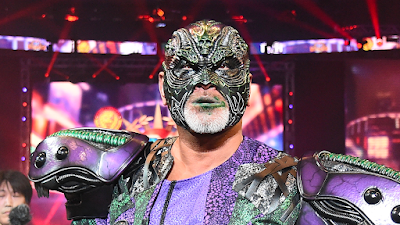To start, High Chief Peter Maivia debuted in wrestling in 1962. His daughter married Rocky Johnson, which is how Dwayne “The Rock” Johnson is part Samoan. Afa and Sika Anoa’i were brothers with Peter Maivia, and they were the Wild Samoans Tag Team. Roman Reigns’ dad is Sika Anoa’i while Samula is the son of Afa. Other Samoans include Tonga Kid, who is Umaga’s Brother and Yokozuna who is Rikishi's cousin. Rikishi had Jimmy and Jey Uso and Solo Sikoa. The Anoa’i family is very large and confusing, and there are so many more that I have not even listed.
Asian representation is a big part of WWE as well. My favorite Asian wrestler is Asuka. She screams and no one knows what she is saying, but you can tell how much wrestling means to her. Other divas like Iyo Sky and Gail Kim have brought so much into the women’s wrestling division.
My favorite male Asian wrestler is Shinsuke Nakamura. He is very passionate about what he does, and he wins often. While The Great Muta never competed in WWE itself, the professional Japanese wrestler was inducted into the WWE Hall of Fame because of his great work. Yoshihiro Tajiri is another Japanese wrestler who competed in the WWE world and received a loving goodbye on his final performance in 2005.
 |
| The Great Muta |
While WWE is a culture melting pot, the show is about good wrestlers. They have good wrestlers all over the world, and they come to WWE in order to grow their fame. WWE is only growing in diversity!
Pics:
https://static0.thesportsterimages.com/wordpress/wp-content/uploads/2021/11/WWE-Shinsuke-Nakamura-Asuka-Mansoor.jpg
https://assets-webp.khelnow.com/news/uploads/2023/06/Samoan-lead-pic-1.jpg.webp
https://www.wrestlinginc.com/img/gallery/the-great-muta-addresses-never-wrestling-for-wwe/l-intro-1665953288.jpg



Comments
Post a Comment